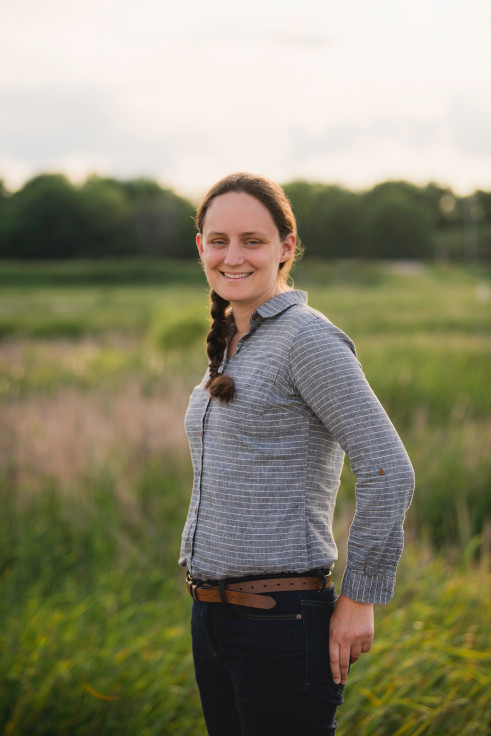I’m the Director of Forbes Biological Station and an Associate Research Scientist, Wetland Bird Ecologist with the Illinois Natural History Survey.

I’m an applied conservation ecologist, which basically means that I do scientific work to solve a problem or answer a question that comes from the natural resource management community. Usually, that involves at least two of three things: birds, wetlands or decision making.
As an ornithologist, I model the migratory connectivity of birds and work to better understand when they migrate and where. My favorite birds, hands down, are the rails.
As an quantitative ecologist, I use complex statistical models to account for the natural variation in the system to better understand if the management action or process at hand is influencing things.
As a field ecologist, I spend a lot of time getting ATVs unstuck, and fixing them, while also designing new survey methodologies for some of the most elusive birds.
As a collaborator, I believe in transparent reproducible science but even more I believe in collaborative science. I believe in science that engages the people who will be using the results to inform their decisions, be they funding decision makers or wetland managers. I want to do good science, but even more I want that science to be useful. I have extensive experience leading teams across organizational, discipline and political boundaries.
As a passionate advocate for a more diverse scientific community I am always interested in studying the impacts of our assumptions in the scientific career path. Currently this focuses on the impacts of unpaid labor.
Feel free to contact me with any questions at auriel@illinois.edu, or on twitter @RallidaeRule
Short Bio
Auriel Fournier is the Director of the Forbes Biological Station, a part of the Illinois Natural History Survey, University of Illinois Urbana-Champaign. Auriel is a quantitative wetland ecologist and ornithologist who completed her PhD studying the fall migration ecology of rails with the Arkansas Cooperative Fish and Wildlife Research Unit at the University of Arkansas in 2017. She then joined the Gulf of Mexico Avian Monitoring Network as a postdoc, working at Mississippi State University on using structured decision making to better integrate bird monitoring. Her research focuses on how we can better manage our wetlands for a wide suite of wetland birds and is often focused on rails and other secretive marshbirds.
Other Places to find me
@RallidaeRule | Google Scholar | Github | ORCID | Mastodon Spore Social